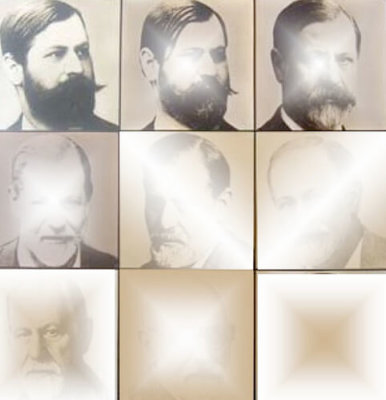Psychotherapeutic Approaches – What are the Main Schools of Thought?

By: cea +
by Andrea M. Darcy
Since the end of the 19th Century, when Freud developed his ‘talking’ cure, psychotherapy has become a burgeoning field in the Western world. In fact Wikipedia now lists over fifty kinds of psychotherapy.
But behind this overwhelming array are really only a handful of schools of thought, or psychotherapeutic approaches, from which they derive.
The below psychotherapeutic approaches are behind most talk therapies now offered in the UK (types influenced are listed below each section).
The different kinds of psychotherapeutic approaches popular in the UK
Psychoanalytic Psychotherapy
Psychoanalytical psychotherapy could be seen as the birth of modern day talk therapy. Its main face is that of Freud, often seen as the father of psychoanalysis, from which psychoanalytic psychotherapy came.
Psychoanalytic psychotherapy believes that most of our thoughts, feelings, and behaviours are things we don’t consciously control. Instead, they are hidden in our unconscious mind. In order to sort out the issues we are experiencing, the idea is we must delve into this unconscious. To this end psychoanalytical therapy uses things like free association, dream interpretation, and analytic transference.
Psychodynamic Psychotherapy
The psychodynamic school of thought arose from psychoanalysis, and uses some of its tools, like free association. But it believes in taking into account conscious thoughts and not just looking to the unconscious.
Psychodynamic psychotherapy believes that talking about problems we are experiencing right here and now, and then identifying how the present is informed by past experiences, can bring relief from emotional distress.
Psychodynamic therapy also focuses more on the importance of the therapeutic relationship – the interaction between you and your therapist – as another place for growth and learning.
Humanistic Psychotherapy
This was the next major movement in psychotherapy was in some ways a revolt to the idea of seeing a client as a ‘patient’ that should be treated as ‘flawed’ compared to the therapist his or herself.
Humanistic psychotherapy is a school of thought that believes all individuals are full of potential that simply needs to be revealed. If offered a safe space, support, and respect, we can all find resources within that mean we can manage our issues and move forward in life.
Carl Rogers, one of this movement’s leading thinkers and the creator of ‘person-centred therapy’, came up with some of this movement’s core tenets, such as empathy, unconditional positive regard (respecting and believing in clients), and congruence (being authentic and honest with clients, not acting the aloof ‘doctor’). This movement also stepped away from the psychodynamic idea of ‘therapist and patient’ to ‘therapist and client’.
- humanistic psychotherapy
- person-centred counselling
Cognitive therapy and behavioural therapy
Two separate schools of psychotherapeutic thought, these two are often united when it comes to attending therapy.
Cognitive therapy looked at the way emotional responses result from out thoughts.
Behavioural therapy looks at the power of behaviour on our moods and wellbeing.
From these two rose the nowadays very popular ‘cognitive behavioural therapy’, or ‘CBT’, which works on the premise that thoughts, feelings, and behaviour are a connected loop. By working on either your negative thoughts or your behaviour, you can change how you feel.
CBT is different to other therapies as it focuses on your present and future instead of your past.
Most cognitive and behavioural therapies tend to be short-term therapies.
- cognitive behavioural therapy (CBT)
- cognitive analytic therapy (CAT)
- compassion-focussed therapy (CFT)
- mindfulness-based cognitive therapy (MBCT)
- dialectical behaviour therapy (DBT)
- schema therapy
- acceptance and commitment therapy (ACT)
Existential psychotherapy

By: Banalities
The renegade of psychotherapeutic approaches, existential psychotherapy doesn’t look to psychology or medicine to solve problems of wellbeing,but to philosophy.
The idea here is that most anxiety and despair in the world arises from individuals feeling their life lacks purpose and meaning. By looking to philosophy, and learning to ask ourselves powerful questions, we can gain real clarity on what we truly want from life, find our place within the world, learn to take responsibility for the life we have, and empower ourselves to make better decisions for our future.
When we feel we have found our purpose, we will wake up feeling more energised and excited about our life.
Integrative Psychotherapy
Many modern practitioners of counselling and psychotherapy fall under this school of thought. The idea is to train in different schools of psychotherapeutic thought, then integrate them in a way that best helps each client.
Many counselling and psychotherapy programs are in fact now integrative, meaning that those training to be therapists are exposed to various schools of thought and the tools they offer. Others take a degree or certification in one school of thought, then continue to train in other approaches over the years, devising their own unique integrative approach they feel best helps those they work with.
Mindfulness-based therapy
The new kid on the block – but based on ancient Eastern techniques – mindfulness is fast becoming popular. More a set of techniques then a school of psychotherapeutic thought, new forms of therapy were created to integrate its concepts. It’s an evidence-based practise, meaning studies repeatedly show mindfulness’ significance for treating depression, anxiety, addictions, and attention problems, amongst others things.
The concept of mindfulness is that by learning to stay centred and focus on what is going on right here and now in the present moment, we can alleviate the emotional distress caused by always judging ourselves on what went wrong in the past and panicking about what may or may not happen it the future.
- mindfulness-based cognitive therapy (MBCT)
- dialectical behaviour therapy (DBT)
- acceptance and commitment therapy (ACT)
Do you have a question about psychotherapeutic approaches we haven’t answered? Comment below.
 Andrea M. Darcy is a mental health and wellbeing expert and consultant, helping people save time and money by guiding them on the types of therapy and therapist that would best suit their issues. Find her on Instagram @am_darcy
Andrea M. Darcy is a mental health and wellbeing expert and consultant, helping people save time and money by guiding them on the types of therapy and therapist that would best suit their issues. Find her on Instagram @am_darcy






Grand!! Great read!
Thanks!